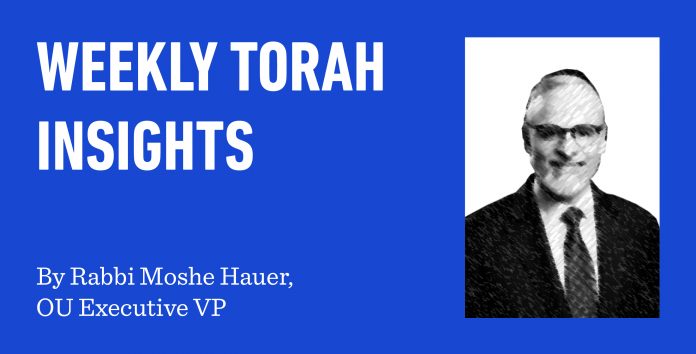Klal Yisrael is rightfully obsessed with the work of chinuch, education.
Both Moshe and Avraham are compared to Bilaam, as our Sages likened the quality of Bilaam’s prophesy to that of Moshe (Sifrei Devarim 34:10) and contrasted the outstanding qualities of the students of Avraham with the inferior character of the students of Bilaam (Avos 5:19). Interestingly, while Moshe is known as our teacher, or Moshe Rabbeinu, and Avraham is known as our Father, or Avraham Avinu, in this context we speak of the students of Avraham.
Avraham’s role as the teacher of his children is underscored in a story that serves as the perfect contrast to Bilaam. While Bilaam looked at the righteous Jewish people and sought to use his words to destroy them, Avraham looked at the wicked Sodom and prayed for them to be spared. It is specifically at that time, when Hashem chose to share the possible fate of Sodom with Avraham, that the Torah records Hashem’s appreciation of Avraham’s greatness (Bereishis 18:19) as the teacher of his children:
For I have known him to instruct his sons and his household after him that they should keep the way of Hashem to perform righteousness and justice in order that Hashem brings upon Avraham that which He spoke concerning him.
For many years Avraham was childless. During this time, he was invested in teaching mankind about the ways of Hashem. After he was finally blessed with his own biological children, he dedicated himself to teaching those children. Their distinguished ancestry would not suffice. They would need their parents to refine them and teach them a way of life. Indeed, the Mitzvah of circumcision bears Avraham’s name, briso shel Avraham Avinu, and symbolizes the parental responsibility to not just bring children into the world, but to cultivate and nurture their moral and religious lives.
It is therefore strikingly fitting that our Sages connected Bilaam and Lavan, both of whom came from Aram Naharayim (Devarim 23:5; see Sanhedrin 105a, Targum Yonasan to Bamidbar 22:5). Lavan came from the same good stock as Avraham. Indeed, the reason that Avraham and Yitzchak both wanted their children to marry into the household of Lavan was because they valued their shared inherent qualities. Yet neither Lavan nor Bilaam would apply to themselves the discipline of education and moral refinement and would therefore never approach Avraham’s moral and spiritual stature. Bilaam’s distinguished ancestry may have given him unusual pseudo-spiritual powers, but without the work of chinuch, of studying and absorbing the teachings of Avraham and of Moshe, he remained vacuous and greedy.
Perhaps this is what Bilaam himself recognized when he expressed wistfully (Bamidbar 23:10):
“Who counted the dust of Jacob or the number of the seed of Israel? May my soul die the death of the upright and let my end be like his.”
While Bilaam was formed from the same dust and seed, i.e. the same yichus as the Jewish people, his end was completely different. He finally recognized that between birth and death there is a lot of work we need to do to produce a refined and developed human being. It is that work of education and self-discipline that distinguishes Klal Yisrael, the children of Avraham who also aspire to be his students. n
Rabbi Moshe Hauer is executive vice president of the Orthodox Union (OU), the nation’s largest Orthodox Jewish umbrella organization.













